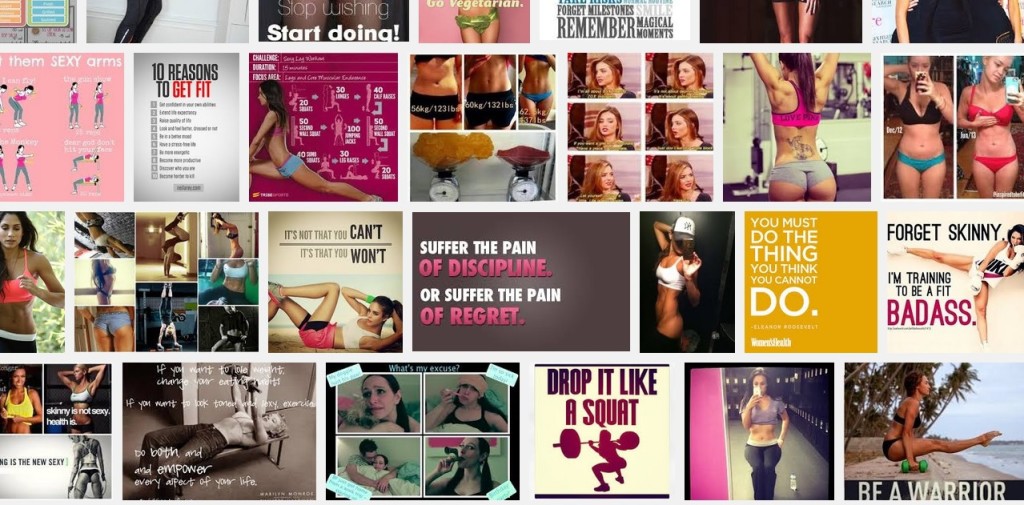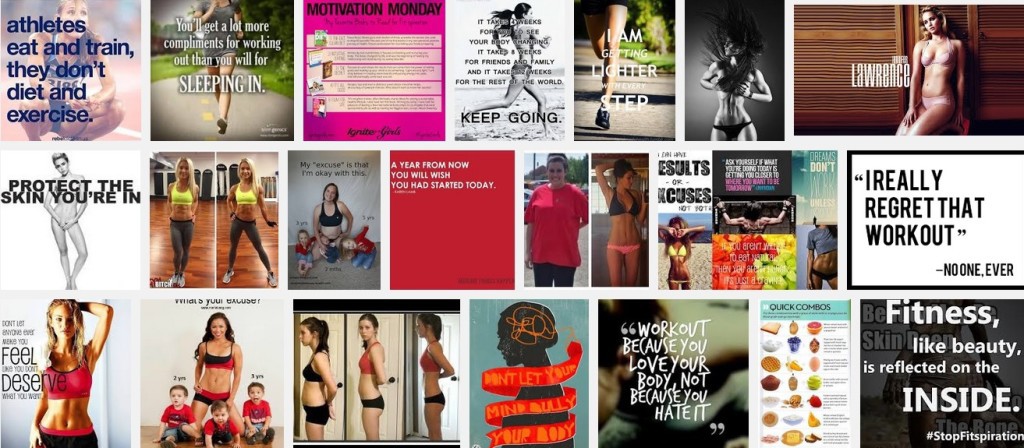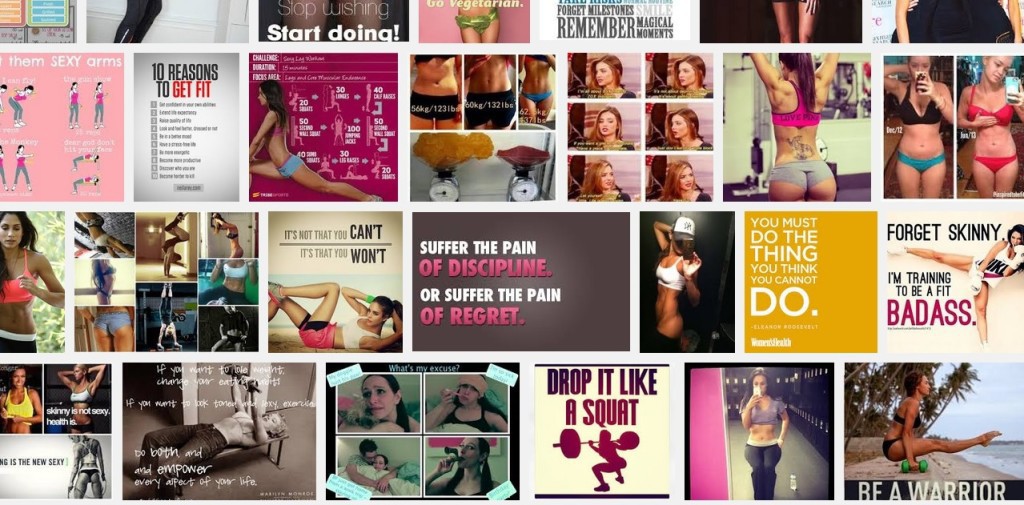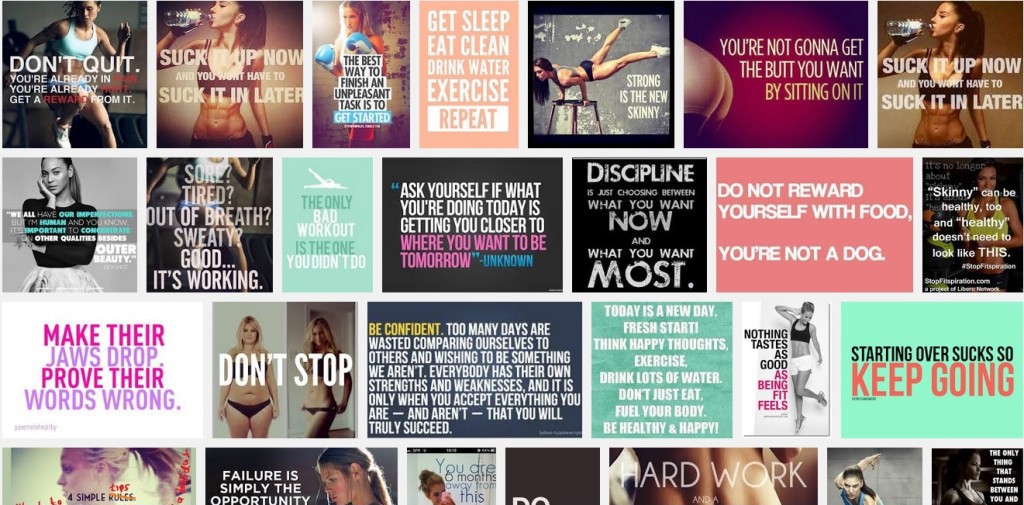Even if you have not heard of the term ‘fitspiration’, you have probably seen some of the countless images posted on Facebook, Instagram and Pinterest, designed to ‘inspire’ you to take action and get fit.
The common theme among these pictures is they portray men or women (mostly women) wearing tightly fitted crop tops, shorts or even spandex. These people do not have faces (well, they obviously do but they are not photographed), because the pic is too busy focusing on their rock-hard abs or the beads of sweat glistening on their well-toned body.
This trend of collecting pictures, memes and quotes about ‘pushing through pain’, ‘working your butt off’ and ‘staying motivated’ is called ‘fitspiration’ or ‘fitspo’.
Not inspiring at all
However, one of the problems with fitspiration is that it does not inspire. These memes tend to focus on exercise as a form of punishment, or something that has to be ‘borne’, rather than enjoyed. They focus on the physical results (often sexualised), rather than the health benefits. They also aim to guilt people into action (i.e. you are lazy and worthless if you’re not disciplined enough to look like this).
Experts believe the trend is promoting poor body image, increasing the likelihood of eating disorders and impaired mood.
A 2013 study showed that when people (particularly those with eating disorders) view images of models idealising thin or muscular bodies, they experience negative self-esteem, may grow anxious or depressed and their symptoms worsen.[i]
If that’s not bad enough, an Australian study of 156 adolescent girls (mean age of 14.9 years) [ii] showed that viewing these kinds of images on the internet or in magazines causes teenage girls “greater internalisation of thin ideals, appearance comparison, weight dissatisfaction, and drive for thinness”.
Interestingly enough, when girls saw fitspiration-type images on the television, they didn’t experience the same feelings, prompting the researchers to conclude that the internet represents a powerful sociocultural influence on young women’s lives.
The problem with social media
Like it or not, social media is here to stay. While social media is not all bad, there is increasing evidence that it is fuelling a rise in eating disorders among teenagers, as they share images of girls looking dangerously thin.
Recent news from the UK[iii] indicates that the number of those aged 13 to 19 being admitted to hospital with anorexia and bulimia has doubled in the last three years.
The new trend of sharing photographs of excessively thin people and swapping tips on social media is becoming an obsession. Experts say that their desire to achieve the ‘perfectly toned body’ can lead them to develop eating disorders and become terrified of eating particular foods. It is also having a devastating effect on their self-confidence and body image.
What many girls don’t realise is that a vast majority of images on the internet are Photo-shopped to look perfect. This culture of ‘perfection’ is now causing teenagers to amend their own photos to create a slimmer or more attractive image of themselves, before posting to their social media accounts.
Tags such as #fitspiration or #thinspiration abound on social media, with countless individuals sharing and collecting these images of very thin and sexualised women. The practice can become addictive and put enormous pressure on teenagers to look a certain way.
Closer to home, a study from Flinders University revealed that a growing number of girls are turned off sport in high school because Facebook and Instagram are making them feel self-conscious about their bodies.[iv]
It’s not just affecting teenage girls
While evidence shows that teenagers and young women are the most vulnerable, men are also affected. After viewing photos of lean, topless males, they also experience a dip in body confidence and a heightened desire to lose weight.[v]
A Sport England survey found that 75 per cent of women would like to exercise more, but were afraid to for fear of being judged over appearance, ability and concerns that they are being ‘selfish’. [vi]
Researchers at Flinders University are calling into question the fitspo trend and are currently conducting a study of women aged 17 to 29 years to determine whether fitspirational media actually discourages women exercising. [vii]
They believe that the new ideal permeating through media is overly sexualised women with bodies that are toned, fit, strong and skinny — something that the vast majority of women will never be able to obtain or maintain.
Researchers believe that viewing such images will result in greater body dissatisfaction, mood disturbance and lower levels of exercise participation.
Exercise for health and happiness
While it is healthy to exercise, doing so because you feel guilt, ashamed of your body, are chasing unrealistic ideals or because you feel unworthy if you don’t exercise, is not healthy. Feeling guilty about taking a day off or not exercising because you are sick is also not healthy.
Exercise should be about health — all aspects of health. It should be about reducing your risk of chronic disease. It should be about staying mobile, flexible and strong enough to go about your daily activities. Exercise should be about feeling proud of yourself and feeling happy within yourself. Exercise should be about the actual experience and joy that comes from exercising, not about an unrealistic body image that is unattainable.
References:
[i] Heather A. Hausenblas, Anna Campbell, Jessie E. Menzel, Jessica Doughty, Michael Levine, and J. Kevin Thompson, Media effects of experimental presentation of the ideal physique on eating disorder symptoms: A meta-analysis of laboratory studies, Clinical Psychology Review 33 (2013): 168-181. http://www.sciencedirect.com/science/article/pii/S0272735812001638
[ii] Marika Tiggermann & Jessiva Miller, The Internet and Adolescent Girls’ Weight Satisfaction and Drive for Thinness Sex Roles 63, nos. 1-2 (2010): 79-90. http://link.springer.com/article/10.1007%2Fs11199-010-9789-z
[iii] ioL Lifestyle, The new alarming trend, selfie anorexics, published 10 June, 2015; accessed 11 June 2015 http://www.iol.co.za/lifestyle/style/beauty/the-new-alarming-trend-selfie-anorexics-1.1869750#.VXjVYvmqqko
[iv] Flinders University, Flinders News, Social media puts body-conscious girls off sport, published 7 October, 2014; accessed 11 June 2015 http://blogs.flinders.edu.au/flinders-news/2014/10/07/social-media-puts-body-conscious-girls-off-sport/
[v] Rachel M. Galioto, The Effects of Exposure to Slender and Muscular Images on Male Body Dissatisfaction . MA Thesis. Kent State University. Ohio, 2013. https://etd.ohiolink.edu/rws_etd/document/get/kent1357582675/inline
[vi] Daily Mail Australia, Scared of being judged at the gym? You’re not alone, published 1 November 2014; accessed 11 June 2015 http://www.dailymail.co.uk/health/article-2815893/Scared-judged-gym-not-New-study-finds-75-women-want-exercise-don-t-fear-think.html
[vii] Flinders University, Flinders News, Strong (and skinny) is the new sexy; the #fitspo effect, published 23 December 2014; accessed 11 June 2015 http://blogs.flinders.edu.au/flinders-news/tag/fitspiration/







